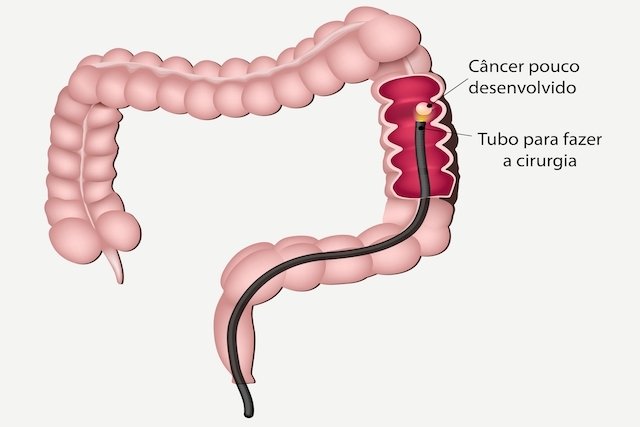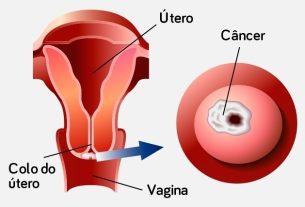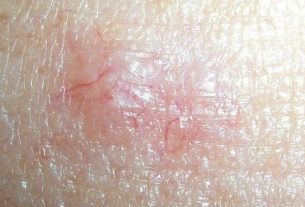Surgery is the main treatment indicated for bowel cancer, as it is a faster and more effective way to remove the majority of tumor cells, being able to cure cancer in milder grade 1 and 2 cases, or delay its progression. development in the most severe cases.
The type of surgery used depends on the location of the cancer, its type, size and how much it has spread in the body, and it may be necessary to remove just a small piece of the intestinal wall or remove an entire portion.
In either type of surgery, the doctor may recommend other treatments, such as chemotherapy or radiotherapy, to eliminate cancer cells that were not removed and prevent the tumor from developing. In more serious cases, where the chances of a cure are very low, these treatments can also serve to alleviate symptoms. See more details about the treatment for bowel cancer.

How it is made
Surgery for bowel cancer can vary depending on the stage of the cancer:
1. Surgery for poorly developed cancer
When the cancer is still in its early stages, the doctor usually recommends simpler surgery, as only a small portion of the intestine has been affected, which is the case with small malignant polyps. To perform this surgery, the doctor uses a small tube, similar to that used in a colonoscopy exam, and which has an instrument at its end capable of removing pieces of the intestinal wall.
Thus, the doctor removes the cancer cells and some healthy cells around the affected region to ensure that the cancer does not develop again. The cells removed during surgery are sent to the laboratory to be analyzed.
After laboratory analysis, the doctor assesses the degree of change in the malignant cells and the need for further surgery to remove more tissue.
This surgery is carried out in the doctor’s office and, therefore, it is not necessary to use any type of anesthesia, and only light sedation can be used. This way, it is possible to return home on the same day, without having to be hospitalized.
2. Surgery for developed cancer
When the cancer is already in a more advanced stage, the surgery is more extensive and, therefore, it must be carried out in the hospital under general anesthesia, and it is also necessary for the person to remain hospitalized for a few days before returning home to be monitored. and to ensure there are no complications.
In some cases, before undergoing surgery it may be necessary for the person to undergo chemotherapy or radiotherapy sessions to reduce the size of the tumor and, thus, be able to avoid removing large parts of the intestine.
Depending on the extent and severity of bowel cancer, two types of surgery can be performed:
- Open surgeryin which a cut is made in the belly to remove a larger portion of the intestine;
- Laparoscopic surgeryin which small holes are made in the abdominal region through which a medical device is inserted that is responsible for removing a portion of the intestine.
After removing the affected part, the surgeon connects the two parts of the intestine, allowing the organ to function again. However, in cases where a very large part of the intestine needs to be removed or the surgery is very complicated, the doctor may connect the intestine directly to the skin, known as an ostomy, to allow the intestine to recover before connecting the two. parties. Understand what an ostomy is and how it is performed.
What is recovery like?
After bowel cancer surgery, it is recommended that the person rests and avoids physical activity, as this can promote faster recovery. Furthermore, it is essential to pay attention to your diet, following the nutritionist’s instructions.
Foods are introduced into the eating routine gradually, with the diet initially being liquid, then pasty and, finally, solid. However, it is not recommended to consume foods that increase gas production and are rich in fat, as they can interfere with the healing and recovery process. Furthermore, it is important that the person drinks plenty of water throughout the day.
In cases where an ostomy is performed, it is also necessary to take some care with the bag to avoid infection, and it is recommended to change the bag whenever it reaches 2/3 of its maximum capacity, or according to medical recommendation, and clean and dry it. the skin well whenever changing the bag, and the doctor may also recommend the use of ointments that can help reduce skin irritation caused by the ostomy bag.
The doctor may also recommend the use of analgesics, anti-inflammatories or antibiotics, depending on the extent of the surgery and the symptoms presented by the person after the procedure. See other important precautions after surgery.
Bibliography
- AMB/CFM GUIDELINES PROJECT. Diagnosis, Staging and Surgical and Multidisciplinary Treatment of Colorectal Cancer. 2001. Available at: <https://diretrizes.amb.org.br/_BibliotecaAntiga/diagnostico-estadiamento-e-tratamento-cirurgico-e-disciplinar-do-cancer-colorreta.pdf>. Accessed on April 20, 2020
- MINISTRY OF HEALTH – HEALTH CARE SECRETARY. Diagnostic and Therapeutic Guidelines for Colon and Rectal Cancer. 2014. Available at: <http://conitec.gov.br/images/Artigos_Publicacoes/ddt_Colorrectal__26092014.pdf>. Accessed on April 20, 2020
- AMERICAN CANCER SOCIETY. Treating Colorectal Cancer. Available at: <https://www.cancer.org/cancer/colon-rectal-cancer/treating.html>. Accessed on April 20, 2020
- NHS. Bowel cancer. Disponível em: <https://www.nhsinform.scot/illnesses-and-conditions/cancer/cancer-types-in-adults/bowel-cancer#about-bowel-cancer>. Acesso em 16 abr 2020

Sign up for our newsletter and stay up to date with exclusive news
that can transform your routine!
Warning: Undefined array key "title" in /home/storelat/public_html/wp-content/plugins/link-whisper-premium/templates/frontend/related-posts.php on line 12
Warning: Undefined array key "title_tag" in /home/storelat/public_html/wp-content/plugins/link-whisper-premium/templates/frontend/related-posts.php on line 13




